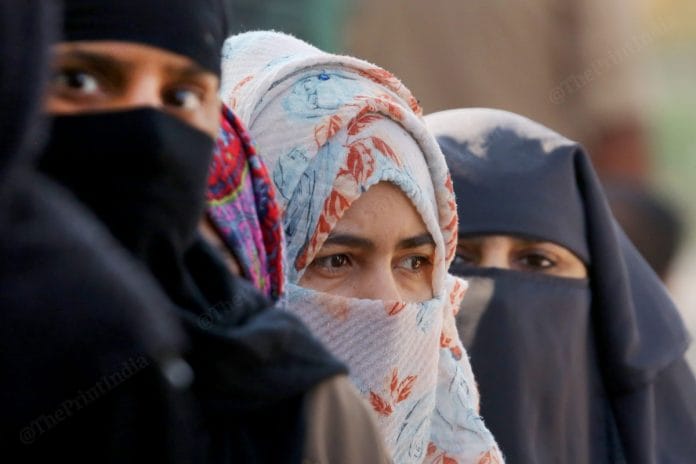The amendments to the Waqf Act 1995 are currently under discussion in the Joint Parliamentary Committee. We expect that the Waqf (Amendment) Bill 2024 will be finalised soon. Amid these discussions, I believe that those who oppose the proposed amendments will eventually realise they are mistaken. These reforms are for the betterment of Indian Muslims, aimed at bringing transparency and ending corruption.
Today, the Indian Muslim community struggles to free itself from the pressure of fundamentalist forces. The community is striving for greater participation in India’s development. Women, in particular, are eager to break free from barriers that hinder their equal participation. No society can progress by keeping its women behind. When the law to end the practice of triple talaq was enacted under the leadership of Prime Minister Narendra Modi in 2019, it was Muslim women who were the most pleased.
A similar sentiment is emerging around the proposal to give representation to women in waqf boards. Their participation would bring fresh perspectives and help curb corruption.
Waqf reforms should have been implemented long ago, but better late than never. By correcting past mistakes and introducing these amendments, waqf boards will become more effective. These reforms align with the recommendations of the Sachar Committee, which was appointed by the United Progressive Alliance (UPA) government in 2005. The reforms are urgently needed and adhere to the spirit of the Constitution. Lok Sabha MP Asaduddin Owaisi or other Opposition members, who argue that these reforms violate the Constitution, should review it again. The very foundation of the Constitution rests on the principle of equality. The Constitution is built on the principle of equality, so how can it allow discrimination against women?
Those who claim that waqf is related to religious matters must understand that this is not a matter related to worship but is actually about the management of real estate. It is essential to free waqf properties from the control of a select few and ensure better utilization of resources.
The amendment proposes to implement a system of transparent, accountable, and equal representation, ensuring the inclusion of neglected sections of the Muslim community, including women. By doing so, the central government is firmly stating that if India is to become a fully developed nation, then women cannot be ignored – they must be represented at every level.
The amendment also ensures that waqf properties should not be misused. Once corruption is eliminated, there should be a system of revenue proportional to assets. What could possibly be wrong in this? Any board or body functions effectively only when there is transparency in its operations and accountability is maintained. The government is addressing this through these new amendments. Without accountability, any system risks becoming autocratic.
Another provision of the amendment requires waqf properties to be fairly identified, and any dispute should be resolved through the legal system, which is fundamental to any democracy.
Proposed changes
In August 2024, besides the Waqf Bill, the Modi government also proposed the Mussalman Wakf (Repeal) Bill to streamline the functioning of waqf boards. Through the latter, the Mussalman Wakf Act 1923 would be abolished, while through the former, important amendments would be made to the 1995 Act, renaming it the United Waqf Management, Empowerment, Efficiency and Development Act 1995. Both Muslims and non-Muslims would be adequately represented in the Central Waqf Council and state waqf board.
Backward classes within Muslim communities such as Shia, Sunni, Bohra, and Agakhani will also be represented. It will be mandatory to have two women in the Central Council and state waqf board. Moreover, the waqf registration process will be streamlined through a central portal and database. Along with this, the tribunal structure will be reformed with two members, and a 90-day period will be fixed for appeals to high courts against tribunal orders, which will reduce disputes.
The authority of the survey commissioner to review waqf properties will be vested in the collector or their nominated deputy. All these steps will make waqf management more transparent and accountable, reducing the potential for disputes.
Provision has been made for the establishment of separate boards for Bohra and Aagakhanis. Before registering any property as waqf, proper notice shall be given to all concerned parties, ensuring fairness and preventing any questions of legitimacy.
The Waqf (Amendment) Act 2013 gave waqf boards unlimited powers, which cannot be challenged in any court. It reduced accountability and transparency and brought no real benefit to ordinary Muslims.
All concerns have been addressed in the new provision. These amendments have been discussed extensively and are now under review by the JPC again, with potential further changes in the coming weeks. When presenting the Bills, the government clearly stated that it had no intention of interfering in religious matters. However, the amendments will have an impact on those who have illegally taken possessions of waqf properties and engaged in corrupt practices.
We should welcome these amendments with open hearts for the betterment of all.
Kausar Jahan is Chairperson, Delhi State Haj Committee. Views are personal.
(Edited by Humra Laeeq)






